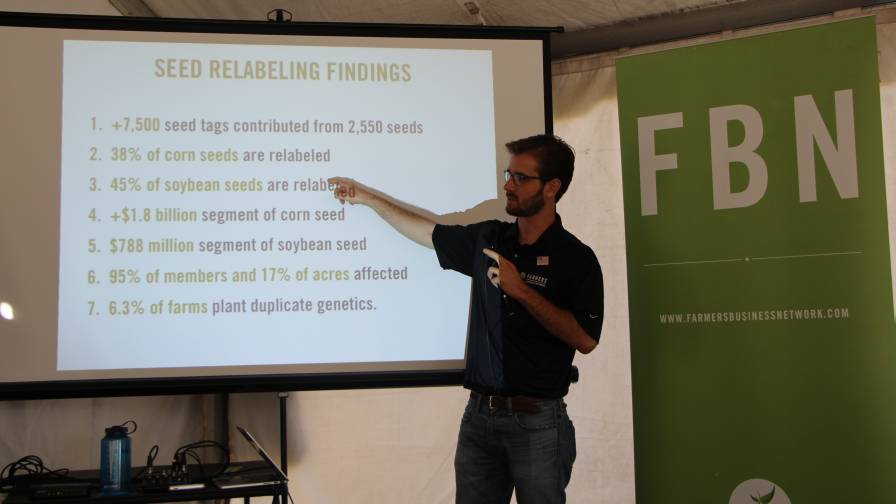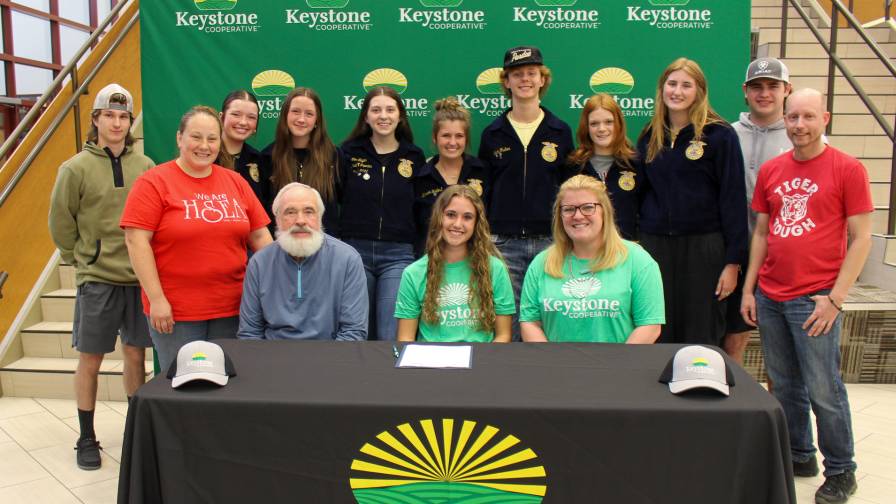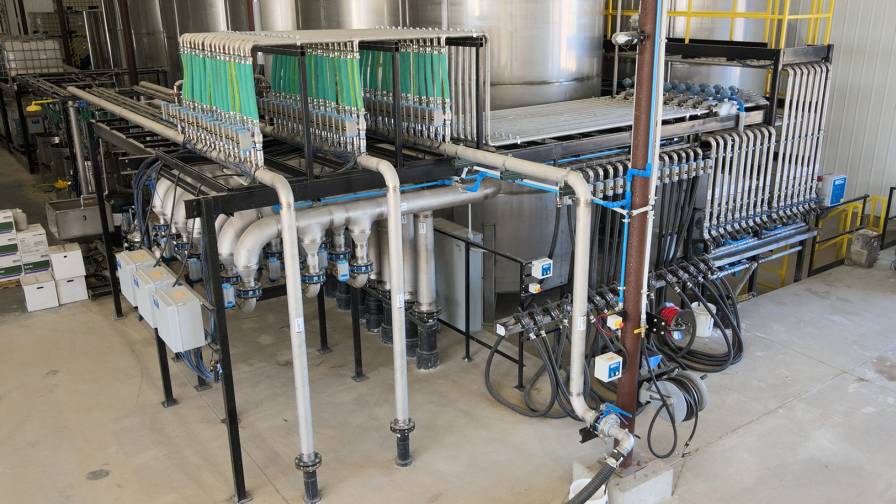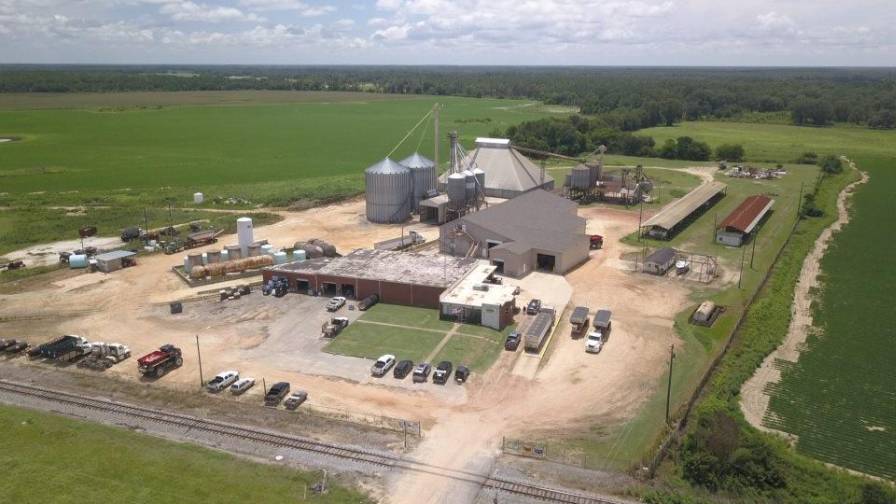Farmers Business Network: Baron Provides Update on FBN Direct
The current state of domestic ag chemical distribution cannot be fully assessed without taking stock of its biggest potential threat — Farmers Business Network (FBN).
Launched initially out of Silicon Valley in 2014 as a farmer-focused, agronomic data aggregation play, in early January of 2016 the company leveraged its acreage network in a spin-off effort — FBN Direct — that at the time sent shock waves through the ag retail industry.
Offering two to four day delivery windows for products, or same-day pickup from one of its 11 warehouses flung throughout the Corn Belt, Upper and Lower Midwest, as well as out in California and Montana, Direct intends to pursue direct-to-farmer sales relationships in crop protection and seed, equipment and technology, even crop consulting.
Or basically, if the traditional brick and mortar ag retailer offers it, FBN is probably looking to disrupt it. And initially they weren’t interested in taking any prisoners, coming out of the gates guns-blazing with an anti-ag retail marketing campaign that the company has since seemingly backed away from a bit. Yet the aspect of FBN Direct that resonates the most with today’s commodity market-driven grower remains: a stated commitment to low, fair and transparent pricing, across the country.
Direct Update
Fresh off banging the pro-farmer drum on the summer farm show circuit with its Seed Relabeling Study report, FBN VP of Product and Co-founder treCharles Baron gave me a quick update on where things are currently with Direct.

FBN’s Charles Baron presents major findings of its Seed Relabeling Study during the 2017 Farm Progress Show in Decatur, IL.
“We’ve seen phenomenal growth here in the last year and a half,” Baron says. “Price transparency has proven to be a very, very popular feature for our farmers, and we’ve now published 6,000 product data pages online that are pubic and not restricted to FBN members. We’ve dramatically expanded the number of products we’re carrying — we now have over 1,200 SKUs accessible — and our farmer credit program is enabling a much earlier credit decision. We’re making the online farmer shopping experience faster and smarter.”
One area that FBN has seemingly beaten traditional ag retail at is marketing. It’s tough to deny that FBN’s anti-big ag marketing is simple, effective, and it resonates with a portion of American farmers that have been hammered by commodity market volatility, with virtually no price relief from the manufacturing channel.
One of the many aspects of FBN’s anti-channel marketing campaign is to hammer home the lack of price transparency and fairness to farmers in the current rebate-driven climate of crop protection manufacturers, as well as retailers closely aligned with the channel.
“In general whether its rebates or bundling, or special discounts that are not transparent, all of these tactics contribute to the overall lack of transparency in the market, and they certainly can confuse and frustrate farmers. I’d say the vast majority of FBN users are very frustrated by it (rebates),” Baron argues. “We’re providing transparency. Our members know that the price is the price.”
Shining light on regional pricing differences — or retailers in different locations sometimes offering the same product at drastically different prices — is another area FBN has found success with.
“When we talk about products in crop protection, there’s almost no difference in distribution or shipping (costs),” Baron says. “A 100% or 300% price difference between products — which is what we’ve found in some cases — simply doesn’t make sense. These are very easily transported commodities, it’s very different from fertilizer where shipping is the primary price constraint.”
Although this author could argue otherwise based on past marketing efforts, Baron says in closing our conversation that the company is trying to get away from its anti-Big Ag perception.
“We’re not anti-this or anti-that, we’re an open commerce platform for farmers,” he says. “We create a marketplace and we do it in a way that’s always focused on farmers and delivering the best price possible for our members.”
The Amazon of Ag Retail?
Another characterization that Baron might take issue with is of FBN as the “Amazon of Agriculture.”
Seeing as how Amazon is basically revolutionizing consumer goods retail and putting thousands of brick and mortars out of business a day, one could argue that’s not a real stinging insult. I mean, who wouldn’t want to be the next Amazon of anything?
Jesse Wiant, CCA and master field sales agronomist, United Farmer’s Cooperative (UFC), for one, wouldn’t.
“We see a little bit of competition (from FBN), they’re around knocking on doors, but guys still want service,” Wiant says. “Guys still want somebody on the farm — scouting, teaching, and helping — vs. just a good price.”
Wiant admits that the price fairness and transparency message FBN has carries to the masses has resonated with some of the larger, more independent growers in his southeastern Minnesota trade area. Where he is most skeptical of FBN’s promises is in the data side of the coin.
“They sell price, right? That’s all they’ve got,” he says. “They claim they’ve got some other tools but how do you know that somebody in Illinois that grew the same hybrid that you did in Minnesota has the same exact soil? I mean, there’s so many different variables at play, and I think our producers are smart enough to understand that, yeah, whatever they’re doing down there isn’t going to work here.”
But what about hanging onto the growers that maybe are enticed by what FBN is offering? Wiant has found success in reminding growers the scope of resources they’d be giving up by going down that path.
“It’s selling value, and selling us, and selling our services,” Wiant explains. “We’re a full service coop, so there’s a lot of different business segments — it’s not just agronomy. I think there’s something to that. It holds the grower’s attention because we’ve got eight different people from the same cooperative touching that grower, versus one guy that’s selling on price, and then you’ll see him, what, next fall when he wants another check? That’s kind of how we’ve been combating it, and it’s been working.”






